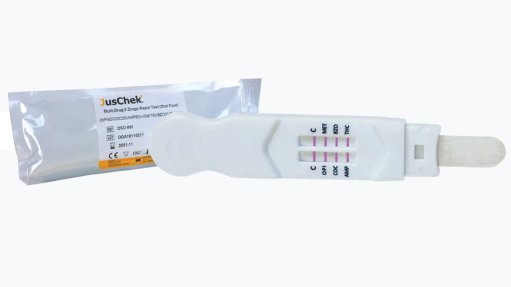AEO – calling South Africa
Harry S Truman, the thirty-third President of the US, famously said that “there is nothing new in the world except the history you do not know”. In similar vein, Marie Antoinette, the last queen of France before the French Revolution, said: “There is nothing new except what has been forgotten.” And you need not lose your head when asked about AEO. A hint: it is not a band – that is ELO (Electric Light Orchestra).
The AEO, or Authorised Economic Operator, according to the World Customs Organisation (WCO), “is widely acknowledged as a key driver for a solid customs-business partnership; a secure, transparent and predictable trading environment; and, in a wider context, enhanced economic prosperity”.
The WCO explains what the AEO is: “A party involved in the international movement of goods in whatever function that has been approved by or on behalf of a national customs administration as complying with the WCO or equivalent supply chain security standards. The parties in the international movement may include manufacturers, importers, exporters, brokers, carriers, consolidators, intermediaries, seaports, airports, terminal operators, integrated operators, warehouses, distributors and freight forwarders.”
For how long has the AEO been around, and how did it originate? Well, about 16 years ago, the WCO Council adopted the Framework of Standards to Secure and Facilitate Trade (SAFE Framework), which would act as a deterrent to international terrorism, secure revenue collection and promote trade facilitation internationally. At the core of the SAFE Framework is the AEO programme, the latest update of which is detailed in the 2020 edition. As of July 2018, a total of 169 of the 182 WCO members had signed letters of intent committing to implementing the SAFE Framework.
In this country, the South African Revenue Service (Sars) started with the Preferred Trader, which it launched on August 1, 2011, before it made way for the AEO, which was launched in November 2020. Currently, the AEO has 137 companies, certified as accredited traders enjoying trade facilitation benefits. Over the next four years, the programme is expected to expand to include all supply chain actors, a simplified programme for small, medium-sized and microenterprises, a single government AEO programme and a single Southern African Customs Union AEO programme with augmented benefits.
Sars, as a government department that controls and administers the international movement of goods, is in a unique position to provide increased security to the global supply chain, and to contribute to socioeconomic development through revenue collection and trade facilitation.
To to be an AEO, applicants must meet the following criteria: customs compliance, systems controls, financial viability, sufficient customs knowledge, cargo security, personnel security, contractor security, conveyance security, crisis management, communication and training, security education, information technology security, and corporate governance.
Which brings us to the Sars media release of July 9, announcing its formulation, with Business Unity South Africa, of the Sars private-sector AEO stakeholder group. The release states: “Border management requires a fine balance of trade facilitation, collection of the correct taxes and improving compliance. Sars’ eighth strategic objective acknowledges that Sars cannot do this alone, that we need to work with and through stakeholders to achieve our intent. The AEO is an important intermediary to achieve this. The quid pro quo is a level of accreditation, integrity and trust between the parties. The AEO programme will ensure achievement of this fine balance at the lowest possible cost, without any compromise to the revenue compliance risks the passage of goods and services across our borders represent.”
It concludes: “A dynamic partnership between Sars and stakeholders is essential to drive innovation and economic growth and [to ensure] that the Sars AEO programme responds more effectively to an ever-changing environment. A jointly developed five-year work plan will culminate in regional integration of the programme by 2025.”
Article Enquiry
Email Article
Save Article
Feedback
To advertise email advertising@creamermedia.co.za or click here
Announcements
What's On
Subscribe to improve your user experience...
Option 1 (equivalent of R125 a month):
Receive a weekly copy of Creamer Media's Engineering News & Mining Weekly magazine
(print copy for those in South Africa and e-magazine for those outside of South Africa)
Receive daily email newsletters
Access to full search results
Access archive of magazine back copies
Access to Projects in Progress
Access to ONE Research Report of your choice in PDF format
Option 2 (equivalent of R375 a month):
All benefits from Option 1
PLUS
Access to Creamer Media's Research Channel Africa for ALL Research Reports, in PDF format, on various industrial and mining sectors
including Electricity; Water; Energy Transition; Hydrogen; Roads, Rail and Ports; Coal; Gold; Platinum; Battery Metals; etc.
Already a subscriber?
Forgotten your password?
Receive weekly copy of Creamer Media's Engineering News & Mining Weekly magazine (print copy for those in South Africa and e-magazine for those outside of South Africa)
➕
Recieve daily email newsletters
➕
Access to full search results
➕
Access archive of magazine back copies
➕
Access to Projects in Progress
➕
Access to ONE Research Report of your choice in PDF format
RESEARCH CHANNEL AFRICA
R4500 (equivalent of R375 a month)
SUBSCRIBEAll benefits from Option 1
➕
Access to Creamer Media's Research Channel Africa for ALL Research Reports on various industrial and mining sectors, in PDF format, including on:
Electricity
➕
Water
➕
Energy Transition
➕
Hydrogen
➕
Roads, Rail and Ports
➕
Coal
➕
Gold
➕
Platinum
➕
Battery Metals
➕
etc.
Receive all benefits from Option 1 or Option 2 delivered to numerous people at your company
➕
Multiple User names and Passwords for simultaneous log-ins
➕
Intranet integration access to all in your organisation

















